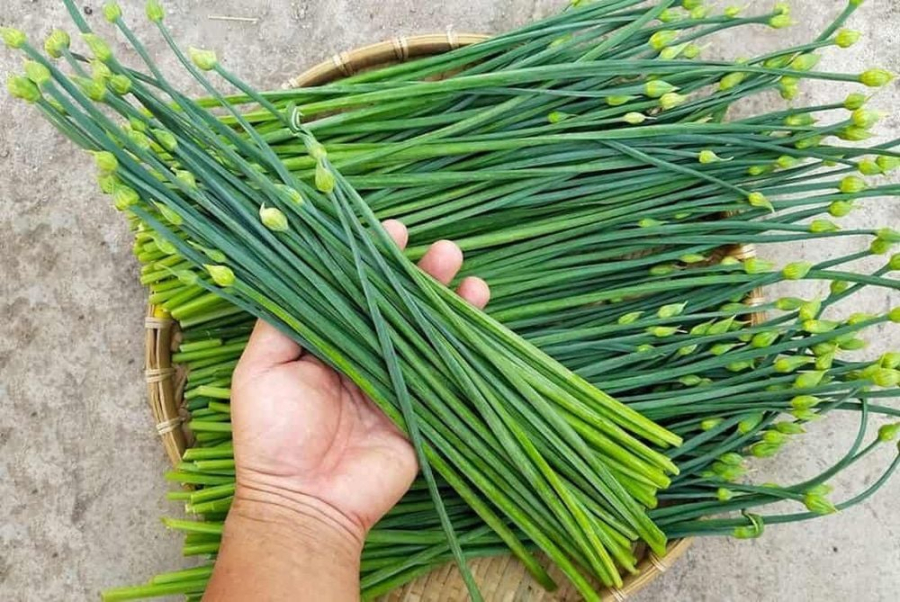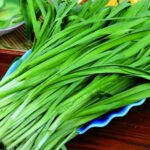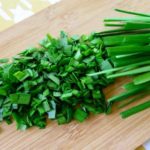Chives are versatile, delicious, and packed with health benefits
Chives resemble green onions, but they stand out with their distinct aroma. This herb is commonly used in cooking, adding flavor to soups, stir-fries, and wonton noodle soup. However, some people may not appreciate the strong flavor and aroma of chives.
Chives are easy to grow and rarely bothered by pests. You can start your own chive garden by getting a few sprigs from a neighbor and replanting them in a pot. Chives grow rapidly, and soon enough, you’ll have a thriving chive plant of your own.

In traditional Chinese medicine, chives are believed to alleviate back pain, treat colds, constipation, skin infections, and parasitic infections. The leaves, seeds, and roots of the plant are all utilized. Chive leaves are rich in vitamins and roughage, aiding digestion, preventing constipation, and reducing the risk of colorectal cancer. Chives are also known for their ability to promote blood circulation, resolve blood stasis, and detoxify the body.
Beyond its culinary uses, chives offer relief from coughs and sore throats. You can chew on chive leaves or gargle with the juice, or try steaming them with honey. Chives contain valuable compounds such as sulfides, saponins, and bitter substances. Notably, the odorin in chives acts as a potent antibiotic against Staphylococcus aureus and Bacillus coli. The juice of fresh chive leaves can be used to combat intestinal bacteria, sore throats, and skin abscesses.
Similar to garlic, chives contain allicin, a natural antibiotic that helps lower blood pressure and inhibits cholesterol production. Chives also exhibit antibacterial and antifungal properties, ensuring a healthy digestive system by eliminating harmful bacteria and fungi.
Chives are also touted for their cancer-fighting potential. Research has revealed the presence of sulfur, carotene, and vitamin A in chives, which are known to inhibit cancer cell growth and prevent their spread throughout the body. Incorporating chives into your diet is, therefore, a wise choice.
Maximizing the Benefits of Chives in Your Diet

Chive leaves have a spicy flavor and a warming effect, so it’s best to consume them in moderation. Chives can be used as a seasoning, similar to onions and garlic, or added to stir-fries and soups. Due to their high roughage content, chives can be difficult to digest and absorb, so overeating may lead to diarrhea. It’s recommended to consume 100 to 200 grams per meal.
Individuals with digestive issues should refrain from consuming chives. It’s also important to avoid combining chives and dairy products in the same meal. Leftover chive soup should not be consumed the next day. When cooking with chives, it’s crucial to chop them finely and stir-fry them over high heat quickly to prevent overcooking, which can lead to a loss of flavor and the deterioration of sulfides.
Additionally, those with eye problems, excessive internal heat, stomach issues, or skin abscesses should avoid consuming chives.



































